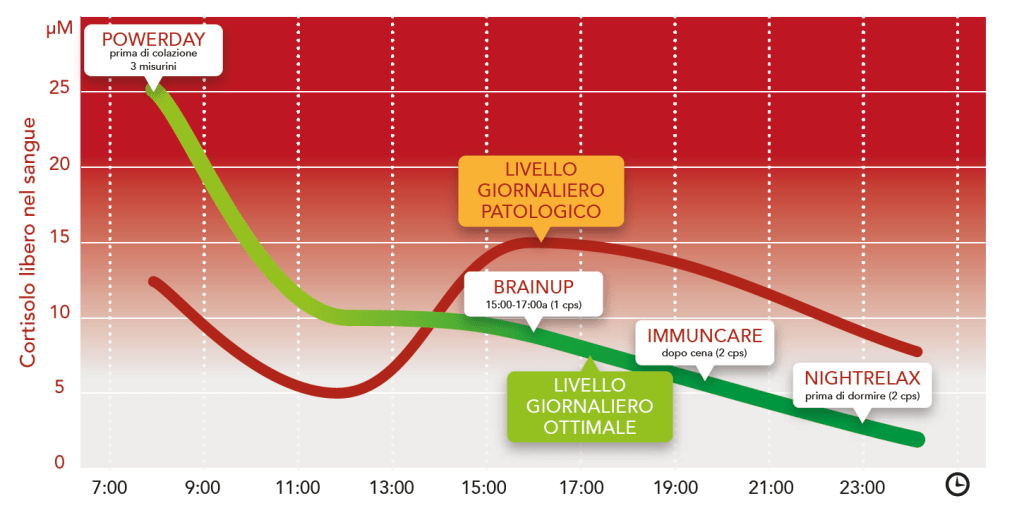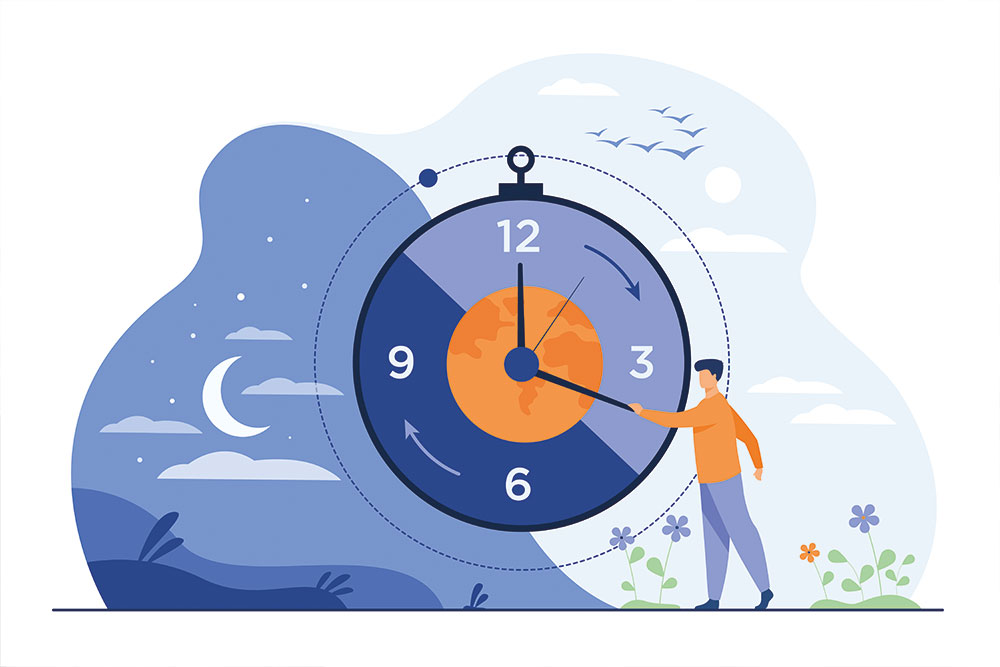Today we will understand together if your circadian rhythms are "off" and how this can affect your health and well-being.
Yes, because you need to know that out-of-phase circadian cycles or chronic sleep-wake circadian disruptions often occur can lead to psychiatric or neurodegenerative diseases.
Before starting this analysis on how circadian rhythms affect our health, we need to make a small premise:
What are circadian cycles?
The regulatory system (or circadian) of us human beings is made up from a series of internal 24-hour body clocks who have the task of keeping metabolic and hormonal processes regulated, as:
- Sleep/wake times
- Body temperature
- Hormone release
All these "biological clocks" (precisely called circadian rhythms) are supported, in turn, by a "main" one which resides within the hypothalamus and which regulates the biological rhythm of our body. In order for the circadian system to "work" properly, all of our internal biological clocks need to be in sync with the stimuli of the surrounding environment.
What are the signs that your circadian rhythms are "off"?
The best indicator is the cortisol level (the stress hormone) during our day, as you can see in the graph below, a correct daily cortisol level (green line) is an indication of correct regulation of circadian cycles.

Yes ok, but how do we in practice understand if our cortisol levels are "correct"?
Let's make a small introduction, cortisol effects throughout our body and is believed (according to many studies) to play a leading role in daily cognitive and behavioral functioning, as well as regulating the immune and inflammatory systems.
Back to us, what are the signs that denote your circadian rhythms are "off"? As mentioned it is cortisol, but on a practical level there is some symptom or "signal" that our body sends us.
In fact, it is very common be in the second condition (red line) that we have seen in the graph above, i.e. with a flattening of the daily cortisol level.
Symptoms that indicate dysregulated cortisol levels may concern:
- States of fatigue
- Bad mood or depression
- Problems with concentration
- Prolonged states of anxiety
- Metabolic disorders
- Overweight and obesity
- Worse overall health (mental and physical)
How can we improve circadian rhythms?
There are a few simple behaviors that can improve our circadian rhythms, let's start with the first: the light.
Light is the strongest circadian stimulus that can be used to regulate our circadian rhythms. In fact, respecting the day and night cycles to carry out our daily activities helps our biological clocks to work in synergy and in a better way, promoting the well-being of our body.

Other behaviors that contribute to a correct "synchronization" of our circadian rhythms are:
- Follow a healthy diet, respecting the distribution of macronutrients in our day: 60% low glycemic index carbohydrates, 15% proteins and 25% natural fats
- Hold excessive sources of stress under control especially in the second part of the day, avoid situations that make us very uncomfortable, therefore, as far as possible, organize a routine that includes all the stressful activities in the first part of the day
- Do constant exercise, intense and short in the morning, low intensity and long duration at the end of the day, can be an effective strategy to optimize and coordinate with our circadian rhythms
- Organize gods moments dedicated to breathing, relaxation, walks in nature, reading, hot bath, especially at the end of the day
These are our tips to restore your circadian rhythms that you have just read. They are "wrong", they are simple tips, but if applied correctly and consistently they can significantly improve the quality of your life.

Is your metabolism slow?
The problems of modern society
We want to conclude this article by admitting that in the society in which we live it is difficult to respect our circadian rhythms in fact, the misalignment between the circadian system and the environmental times is a common condition nowadays (many times we don't even realize it), which however numerous negative consequences are connected and chronic pathologies, such as (and COVID is proving to us) one dysfunction of our immune system.
So the best advice we can give you (or that you yourself can give yourself) is to respect your biological clocks not only to live your daily life better, but also for your health over the years.
Sources:
- Curr Psychiatry Rep. 2019 Mar 2; 21(3):14. doi: 10.1007/s11920-019-1001-8
- J Biophotonics. 2019 Dec;12(12):e201900102.doi: 10.1002/jbio.201900102. Epub 2019 Sep 2.
- Lupien et al., 2009
- PLoS One. 2019; 14(12): e0225988. doi: 10.1371 / journal.pone.0225988
- Nat Rev Endocrinol. 2019 Apr;15(4):197-206.doi: 10.1038/s41574-018-0150-x.



